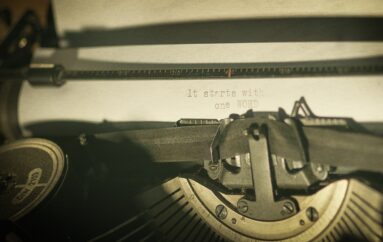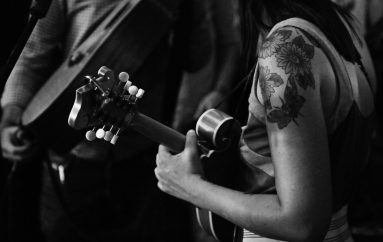
Intervista con Ian Anderson, al Pescara Jazz con i Jethro Tull
Il flauto magico di Ian Anderson torna a incantare il teatro d’Annunzio in un concerto di mezza estate. Lunedì 31 luglio, in occasione di uno degli appuntamenti più attesi di Pescara Jazz, il musicista britannico suonerà con i suoi Jethro Tull alcuni dei brani più significativi della loro discografia decennale, dai dischi di inizio carriera a RökFlöte, il 23esimo album uscito lo scoro aprile. Un progetto che continua a macinare chilometri e date, stagione dopo stagione. I Tull registrarono e pubblicarono il loro primo album, This Was, alla fine degli anni Sessanta, con la formazione originale con Anderson, Cornick, Bunker e Abrahams. Dopo la sostituzione di Mick Abrahams con Martin Barre, circa altri 30 musicisti si sono avvicendati nelle file del gruppo, pur lasciando inalterato un marchio che sopravvive e dura nel tempo. Info: www.besteventi.it.
Anderson, è dalla memorabile partecipazione a Sunsbury che la sua band ha una forte connessione con festival di jazz e blues.
Questo aspetto rappresenta esattamente ciò che mi ha avvicinato alla musica. Ero affascinato dal suono di diverse culture e regioni. Il blues ha fatto un po’ da porta d’accesso per imparare a suonare uno strumento e per iniziare a capire come fare improvvisazione. Ma poi, con Stand Up nel 1969, ho introdotto elementi di musica classica e folk di diverse provenienze. Per me la commistione di generi è importante ma so che molte persone vogliono qualcosa di più immediato e puro come esperienza musicale. Per questo faccio riferimento al blues, al country, al jazz degli anni ’50. Mi piace mescolare tutto e trovare una forma ibrida che soddisfi i miei gusti e le mie pulsioni creative.
Cosa si attende da un festival come Pescara Jazz?
I festival dalle line up articolate non rientrano tra le mie preferenze. Troppo rumore e troppe persone dietro le quinte. Preferisco, come nel caso di Pescara, le kermesse fatte da una serie di concerti individuali. Per la verità, sono troppo preso dall’esecuzione per badare all’ambiente esterno. Ho bisogno di concentrazione totale, come quella che serve per guidare una Ferrari F1 a Monza. Sul palco, non c’è tempo per guardarsi in giro, intrattenersi con i fan o gustarsi una birra.
Quali aspettative ha il vostro pubblico, anche sulla base dei vostri ultimi album?
Ancora di più di quello che abbiamo sempre fatto. La continuità nel mantenere uno stile e un equilibrio attento delle influenze. Presenteremo un po’ di musica tratta dalle produzioni di tutti i tempi. Naturalmente, il corso della musica è in continua evoluzione, ma posso guardare indietro, vedere dove sono stato e poi voltarmi a guardare di nuovo l’orizzonte e pensare a cosa verrà dopo.
Messi da parte i riferimenti biblici di the Zealot Gene (2022), proponete ora con Rökflöte le suggestioni pagane della mitologia norrena
The Zealot Gene è stato interamente scritto nel 2017, ma solo quattro canzoni sono state completate quell’anno. Il resto della registrazione, del missaggio e del mastering ha dovuto aspettare fino al 2021 a causa della pandemia e delle relative restrizioni. Ho iniziato a lavorare sull’album RökFlöte a gennaio 2022 e l’abbiamo fatto le registrazioni durante il primo semestre dell’anno, tra un concerto e l’altro. Mi piace rispettare la scadenze. La pressione mi fa bene. Non bisogna impigrirsi con l’età.
Come si è evluto il suo modo di suonare il flauto negli anni? Sono completamente autodidatta, quindi nei primi 20 anni ho fatto i conti con vari errori da principiante! Dagli anni Novanta ho iniziato a suonare flauti di migliore qualità. Cerco di replicare il mio “vecchio” modo di suonare, ma utilizzando le diteggiature corrette e le tecniche insieme alle migliorie che ho apportato negli ultimi 30 anni. Non sono un esperto rispetto ai grandi flautisti classici come il mio amico Andrea Griminelli, ma ho un senso ritmico naturale per la musica e alcune capacità di esecuzione che mi fanno sembrare migliore di quello che sono realmente.
E il futuro cosa riserva? Nuove registrazioni da solo o coi Jethro Tull?
Ho l’intenzione di registrare il prossimo album tra gennaio e febbraio per pubblicarlo nell’ottobre 2024. Il resto lo scoprirete con calma.
ENGLISH INTERVIEW
Since the 1968 experience of Sunbury, your band has a strong connection with jazz and blues festivals. What are your thoughts on the fusion of different musical genres? That is exactly what brought me to music in the first place. I was fascinated by the music of different cultures and regions. Blues was a gateway to learning to play an instrument and simple improvisation. But then, with Stand Up in 1969, I brought in elements of Classical Music and Folk Music from different countries.
Do you believe that blending elements of rock, folk, and jazz can create new and exciting musical experiences? For me, yes! But many people want something simpler and purer as a musical experience. Hence, Blues, Country, 50s Jazz or whatever. I like to mix it up and find a hybrid form which satisfies my taste and creative urges.
How do you envision the overall atmosphere and energy of the performance at a festival like Pescara? Multi-act festivals are not my favourite. Too noisy and too many people backstage. Festivals which are a series of individual concerts appeal much more. For me, the energy and atmosphere disappear as soon as I go on stage. I have more urgent aspects to concentrate on for the next two hours rather than the elements which the audience may find appealing. Total concentration! Like driving a Ferrari F1 car at Monza. No time to look around and wave at the fans or enjoy a beer….
What can the audience expect from Jethro Tull’s unique fusion of styles even considering your latest records? More of the same! The continuity of maintaining a style and careful balance of influences. We will feature some music from each of the seven decades of Jethro Tull releases. Of course there is an ongoing shift in the nature of the music but I can look over my shoulder, see where I have been and then turn to face the horizon again and think about what comes next.
Your 2022 album The Zealot Gene, themed around verses from the Bible. Over a year later, Tull are back with RökFlöte which has forsaken the Bible in favour of the paganism of Norse mythology with a special focus on the characters. A strong suggestion in which your flute seems to play a particular and powerful role, in addition to new colors and stylistic choices. Could you talk a bit about the creative process? The Zealot Gene was all written back in 2017 but only four songs were completed in that year. The rest of the recording, mixing and mastering had to wait until 2021 because of of the pandemic and lockdowns. I started work on the RökFlöte album on the first of January 2022 and we recorded it during the first half of the year between the many tours. I like the challenge of setting a time and date and sticking to a schedule. The pressure is good for me. Musn’t get lazy in old age!
How has your flute playing evolved over the years? I am completely self-taught so I made some basic errors for the first 20 years! I had to relearn in 1991 and switched to playing better quality flutes. I try to replicate my “old” way of playing but using the correct fingering and techniques along with the refinements I have made over the last 30 years. I am not an expert compared to the great classical flautists like my friend Andrea Griminelli but I have a natural rythmic feel for music and some performance skills which make me look better than I really am!
What can we expect in the future: new recordings by Ian Anderson or Jethro Tull? I aim to record the next album in January and February for release in October 2024. More than that, I don’t want to talk about. I like to keep it secret until I have actually finished the mastering and delivered it to the record company – just in case I change my mind about something.




